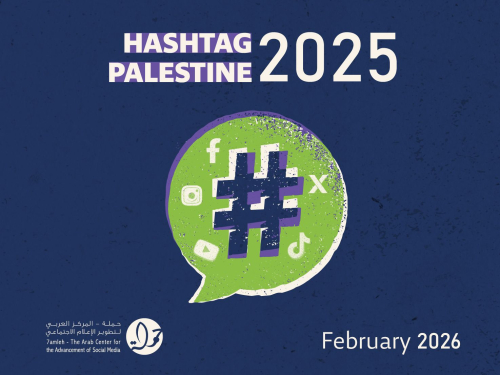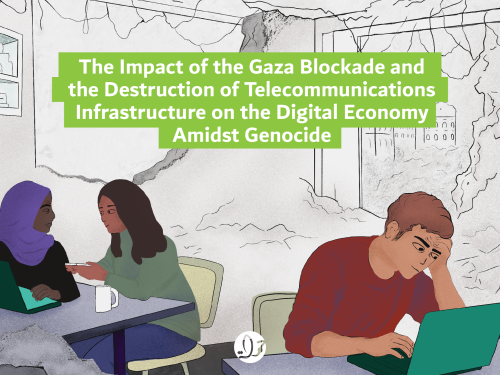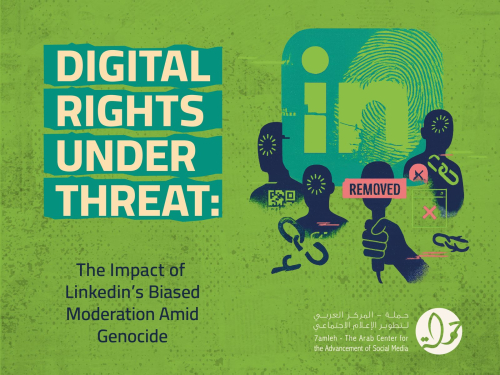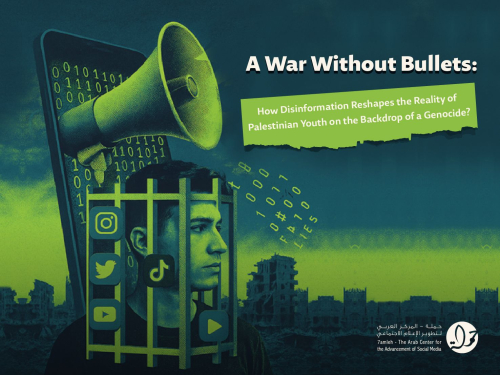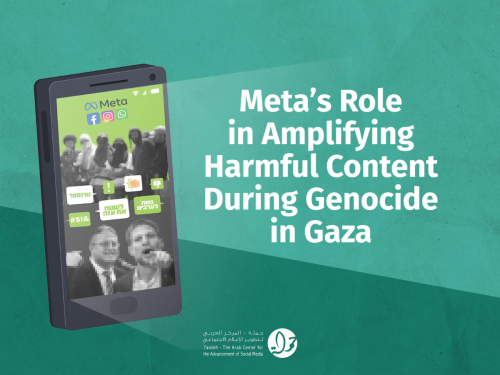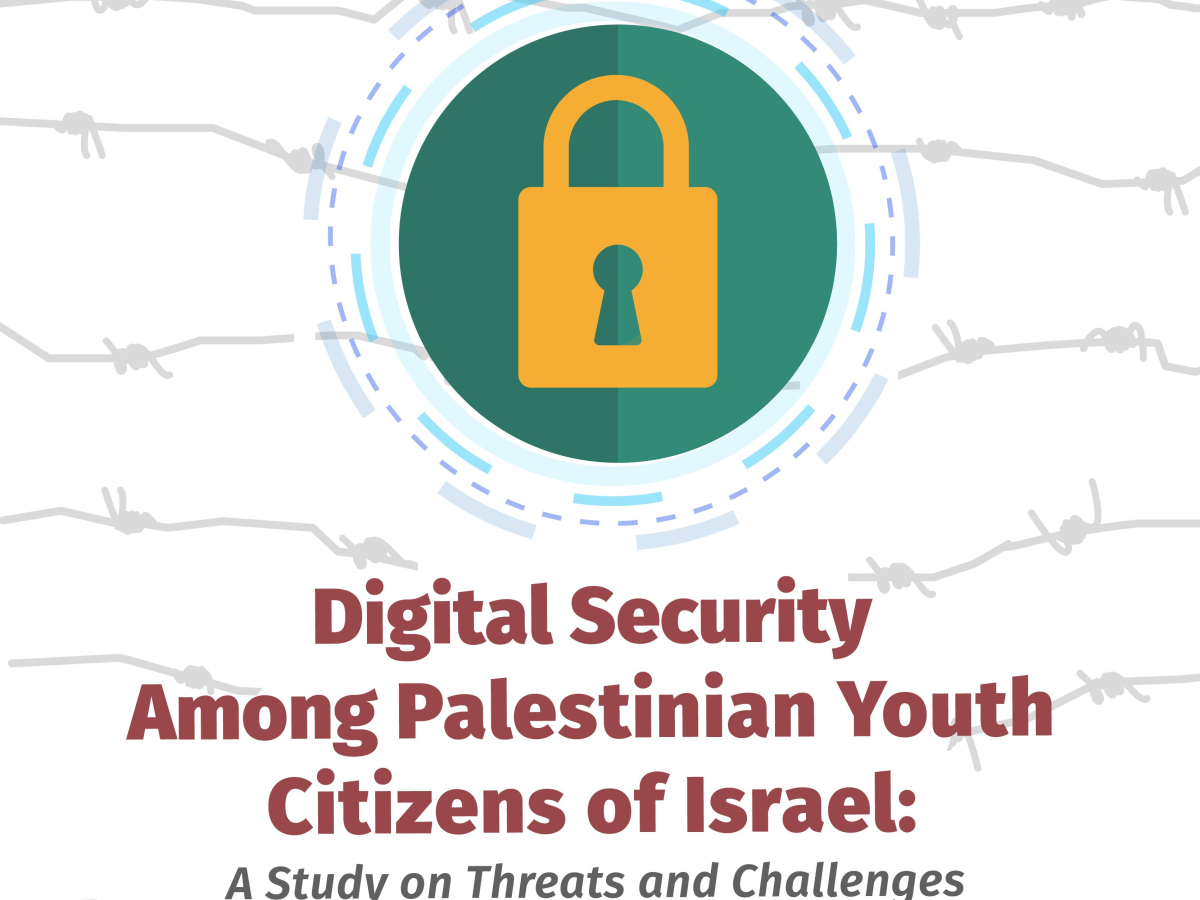
August 28, 2024, 7amleh - The Arab Center for the Advancement of Social Media released a study entitled "Digital Security Among Palestinian Youth Citizens of Israel: A Study on Threats and Challenges in Light of the War on Gaza," authored by Dr. Saeed Abu Mualla, a writer and lecturer in journalism at the Arab American University. This study follows a previous one focused on digital security among Palestinian youth in the West Bank and Jerusalem. The new study sheds light on the digital security landscape among Arab Palestinian youth in Israel during the Israeli war on Gaza. The findings from the survey data analyzed in the study reveal that users experience fear and anxiety, leading to an avoidance of digital activism and participation. This sense of mistrust has translated into apathy and a complete disregard for the dangers surrounding them in the digital realm. Additionally, there is a pressing need to provide digital knowledge and security to civil society organizations and those who interact with them.
The theoretical framework of the study highlights a lack of research covering the experiences of Palestinian Internet users in Israel. Existing studies treat them as part of either the Israeli or the Palestinian community, without considering the unique aspects of their citizenship and the impact of intersecting policies on their Internet use. The study also reveals that Israel has developed a comprehensive legal and executive system to enforce control over the Internet, leading to blatant violations of digital rights and creating a "digital fear " that has driven users to reduce their expression of opinions. Furthermore, digital attacks, especially those with political and nationalistic backgrounds, have increased since the war on Gaza, including "identity theft," "phishing," and "harassment and abuse." This has exacerbated the trust crisis, with "ignoring" becoming the predominant response to digital assaults due to the absence of a reliable entity to turn to. This situation reflects a state of self-censorship and digital inactivity, affecting 70% of the Palestinian youth in Israel, thereby reducing the use of the Internet as a tool for mass activism.
The Israeli government has imposed a pattern of self-censorship among Palestinian users through repressive policies, particularly following the May 2021 uprising and later during the war on Gaza. Users have increasingly preferred to follow the news without engaging with it. Israel has reinforced this pattern by enacting laws targeting websites frequented by Palestinians. Israeli security agencies have exploited the patriarchal nature of Palestinian society to pressure activists, heightening their fears. Participants in focus groups reported that the Israeli security agency (Shin Bet) exploited the traditional patriarchal nature of Palestinian society to pressure them into limiting their expression of opinions about political events or the war on Gaza. Additionally, gender differences in the sense of digital security were evident, especially among the Bedouin community in the Negev.
Israeli policies, including strict surveillance and legal prosecution of Palestinian youth active online in Israel, contribute to reinforcing fear and self-censorship among them. The collision of national identity with citizenship in their daily lives, especially on digital platforms, has increased feelings of privacy invasion and loss of digital security, prompting many to avoid online interaction. In this context, Marwa Hanna, Director of Capacity Building at 7amleh, emphasized, "This study highlights the importance of enhancing digital security awareness among Palestinian youth in Israel, particularly in light of the growing challenges posed by Israeli government policies on freedom of expression and Palestinian digital rights. At 7amleh, we aim to enhance the knowledge of youth and provide them with the tools necessary to protect their digital rights and ensure their ability to use the Internet as a platform for safe expression and digital participation."
The study concluded with a set of recommendations aimed at enhancing digital security, including launching intensive awareness campaigns comprising training sessions, seminars, and educational materials to increase awareness of digital security risks and effective protection measures. The importance of providing legal and technical support to activists and developing rapid response plans for digital attacks was also emphasized. Additionally, there were several important recommendations, including: documenting digital violations against Palestinians and publishing periodic reports to analyze their impact on fundamental rights, collaborating with the Higher Follow-Up Committee and local authorities to integrate digital rights and security into media literacy programs and curricula, and advocating with technology companies to ensure effective responses to cyber threats and transparency in dealing with Palestinian content. Conducting studies to better understand gender and cultural differences in digital usage and developing tailored solutions to support various groups was also suggested.
To view the study, "Digital Security Among Palestinian Youth Citizens of Israel: A Study on Threats and Challenges in Light of the War on Gaza," please visit the link here.
Related Articles
Subscribe to Our Email Alerts
And stay updated with our latest activities, news, and publications!

